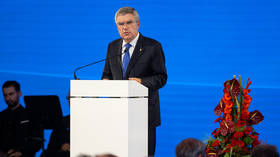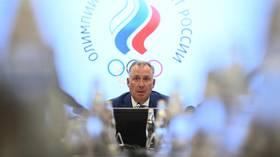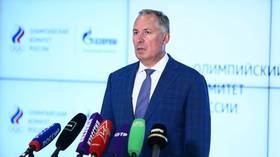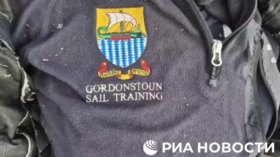Olympic chief says ‘not the time’ to lift Russian bans

An hour-long speech from International Olympic Committee (IOC) president Thomas Bach in Seoul on Wednesday morning saw him state that now is “not the time” to lift the ban on Russian athletes.
The IOC made a recommendation to ban Russian athletes from international sports when the military operation was launched in late February.
Bach has suggested that Russian athletes might be allowed back into the international fold as long as they denounce the conflict.
At an ANOC (Association of National Olympic Committees) General Assembly in the South Korean capital on Wednesday morning, Bach insisted that athletes should not be punished for the policies of their government and accused some governments of politically interfering with the autonomy of sporting bodies.
Bach said that the situation that has seen Russia and Belarus banned from the international sporting arena is “unique” for the Olympic movement.
He again accused Russia of violating the ‘Olympic Truce’ by launching military action against Ukraine and claimed that the “annexation” of Ukrainian territory by Russia has “deepened its violation of the Olympic Charter.”
“All of this means for us that the sanctions against the Russian and Belarusian governments must and will firmly remain in place,” the IOC chief stressed.
He claimed that the recommendation the IOC made against Russian and Belarusian athletes was a “protective measure,” guarding against political interference from governments against them.
“We did so, but with a very heavy heart, because these protective measures concerns athletes and officials who are not responsible for this war, who did not start this war,” Bach explained.
“Athletes should never be the victims of the policies of their own governments,” he added.
Bach said that the IOC has been put in an “unsolvable dilemma.” “On the one hand, we cannot fully live up to our Olympic mission, which is to protect the athletes and to unite the entire world in peaceful competition…,” he conceded.
“Now, unfortunately, in this unique situation, the only way to protect this mission was to recommend the non-participation of athletes just because of their passport.”
“If we had bowed to this political pressure, if we had bowed to this attack on our autonomy, we would have experienced a domino effect which would lead to discrimination and conflict in sport just for political reasons,” he continued.
“We had to protect the international sports system from the full politicization of sport. Because today it is Russia and Belarus, but if we let politics take over sport, then tomorrow it will be you. And this, we must prevent.
“We must avoid sport becoming another tool of the popular tit-for-tat sanction regime in the world, for any political reason. Each of us has to know that they could be affected themselves in the future,” he added.
Bach said that in everybody’s interests, “we firmly resist this full politicization of sport. In firmly standing up against this full politicization of sport, we will not fall into the trap of the propaganda machine that wants to make people believe that it is us that is violating the Olympic Charter.”
Taking aim at Russia, Bach said it is “perverse” to denounce the sanctions and protective measures as a “politicization of sport” as Russian sporting and political leaders have done with frequency.
“The reasons for the sanctions as well as the protective measures still exist. This is not the time to change any of our sanctions or protective measures,” Bach said, thanking those that had followed them.
Addressing a question as to why the sanctions had not been extended to Russian and Belarusian sports organizations, Bach underlined that this is because the conflict “has not been started by the Russian people, the Russian athletes, the Russian Olympic Committee, or the IOC members in Russia.”
“Sanctions can and must be imposed only on those who are responsible for starting it,” he reiterated.















